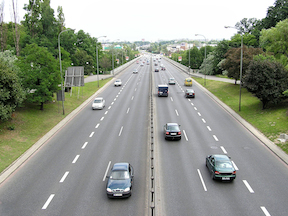 Since the start of 2014, 9 million vehicles have been recalled in the United States. Both Toyota and GM have contributed substantially to that amount. If we continue at this rate, we could break the record for most vehicles recalled, which was set in 2004 with 30.8 million vehicles, according to the Associated Press.
Since the start of 2014, 9 million vehicles have been recalled in the United States. Both Toyota and GM have contributed substantially to that amount. If we continue at this rate, we could break the record for most vehicles recalled, which was set in 2004 with 30.8 million vehicles, according to the Associated Press.
Many car companies are in a frenzy right now, as they try to avoid bad publicity, civil suits, punishments like fines, and even criminal charges in the wake of a slew of recalls. General Motors, specifically, has been in the hot seat recently for a recall involving faulty ignition switches. However, the GM recall may be more than a simple mistake. Missouri Senator Clair McCaskill has accused GM of a coverup, and Senator Kelly Ayotte has been quoted as saying, “I don’t see this as anything but criminal,” in the Concord Monitor.
Toyota has been under scrutiny as well. The latest recall from the Japanese automaker came before they even had any specific fixes. Not long ago, Toyota was lambasted by the Justice Department for concealing issues with their vehicles that caused involuntary acceleration.
One may be wondering how so many vehicles can be recalled. Jessica Caldwell, senior analyst for Edmunds.com, says that one factor that can contribute to massive recalls is that automakers may use a common part across their entire vehicle lineup. For example, if GM were to use the same ignition switch in all of its vehicles and that ignition switch were faulty, it would need to be replaced in all vehicles.
Clarence Ditlow, executive director of the nonprofit Center for Auto Safety has remarked that in the past, after highly publicized cases, automakers at first quickly issued recalls, but those recalls drop off as bad publicity fades; however, criminal charges, like those potentially facing GM, could be a real game-changer. Criminal charges may make automakers more willing to recall potentially hazardous vehicles before injuries or fatalities occur, not try to cover issues up, or even be more cautious with building vehicles in the first place.

